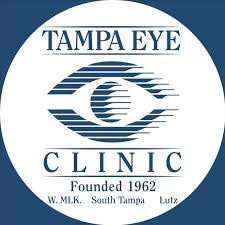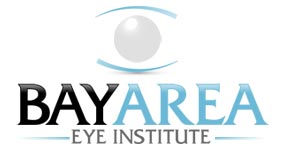General Ophthalmology

What happens during a Comprehensive Eye Exam?
During a routine eye exam, Dr. Gamell checks your vision, makes sure your eyeglasses are up to date, checks your eye pressure and makes sure the front of your eye and the retina are in good health. Depending upon your age and other pre-existing medical conditions, Dr Gamell can make sure certain conditions are not affecting your eyes. You should see your Ophthalmologist for a routine eye exam once a year, unless you have certain eye conditions that require more frequent office visits. Some (but not all) of these conditions are listed below.
Dry Eye
Your eyes naturally produce tears to wash away debris each time you blink to ensure you have clear vision. Dry eye is a condition that develops when you don’t make enough tears, or enough quality tears, to nourish and moisturize your eyes.
Glands around your eyelids produce tears. As you get older or because of an underlying medical condition, these glands may not produce the amount of tears you need to maintain good eye health.
You may also develop dry eye if the quality of your tears is low. Your tears contain layers of oil, water, and mucus. Usually, a lack of water causes tears to evaporate too quickly or not spread evenly over the eye.
What are the symptoms of dry eye?
A hallmark of dry eye symptoms is the sensation that you have something in your eye. You may also experience:
Burning
Scratching
Gritty Feeling
Excess Watering
When your eyes aren’t producing enough tears, it can impair your vision. Without the proper treatment, you can suffer damage on the front surface of your eye.
How is dry eye diagnosed?
While dry eye is a very common condition, especially in older people, it requires a careful evaluation to confirm a diagnosis. Dr. Gamell has extensive experience in assessing eye health and the quality of your tears.
During your evaluation, Dr. Gamell will review your medical history, lifestyle, and the dry eye symptoms you’re experiencing.
You can also expect a comprehensive eye exam and tear testing. Using special dyes, we evaluate the flow of your tears and how quickly they evaporate from the surface of your eye to confirm dry eye.
How is dry eye treated?
Initially, you may benefit from artificial tear solutions to nourish your eyes or medicated eye drops to reduce irritation and inflammation. Nutritional supplements, like omega-3 fatty acids, may also be of some benefit to improve natural tear production. In addition, Dr. Gamell will look for other factors that may be contributing to your dry eye, such as allergies, blepharitis, eyelid malpositions, contact lens overwear, or medications you may be taking.
Tear duct procedures
If these treatments aren’t enough to manage your symptoms, Dr. Gamell may recommend a procedure to implant plugs in your tear ducts. The plugs block the ducts that drain away tears to help you retain moisture for a longer period of time. You may also need a surgery to permanently close your tear ducts.
Lifestyle changes
Additionally, you can make necessary changes to reduce dryness in your eyes, such as adding humidity in the air. You should wear sunglasses when outdoors and drink plenty of water each day to stay hydrated. You should also make a point to blink more often when working on a computer or reading.
Diabetes
Diabetes can affect the eyes in many ways. Diabetes can cause bleeding and protein leakage in the back of the eye called Diabetic Retinopathy. When advanced, this retinopathy can lead to abnormal blood vessel growth which can lead to vision loss and even glaucoma in certain instances. Diabetes can also cause swelling of the retina called macular edema, which can affect your central vision. Dr. Gamell can diagnose these conditions with a routine dilated exam and using special eye scans called Optical Coherance Tomography or OCT.
If you have Diabetes, you should have a Diabetic Eye Exam at least once a year to make sure there are no signs of retinopathy present. If Dr. Gamell finds evidence of retinopathy or macular edema on your exam, she may recommend more frequent exam, or refer you to a retina specialist for treatment.
Macular Degeneration
Macular Degeneration is a disease that affects your central vision. When the pigment in the part of your retina called the macula changes with age, it can cause scotomas, or black spots in your vision. This can be diagnosed during a routine dilated exam. There are two types of macular degeneration: wet and dry. Dr. Gamell uses Optical Coherence Tomography or OCT to help distinguish between the two disease types.
Dry macular degeneration usually progresses slowly, and is treated with vitamin supplements and observation. Wet macular degeneration can progress more quickly, and usually requires special injections in the eye to prevent worsening of the disease. Depending upon which type of macular degeneration you have, Dr. Gamell may suggest close monitoring with dilated eye exams or may refer you to a retina specialist.




